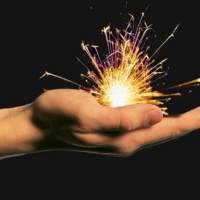When Vivat (from brands such as SNS Reaal and Zwitserleven) announced it has agreed with a takeover by Anbang, most people never heard of this illustrious and cash-rich Chinese company, let alone the founder Xiaohui Wu, who founded the company only 11 years ago. Telecom giant Huawei, car maker BYD, insurance software developer eBaotech, and diary producer Yili are among the many that have set foot in the Dutch market. Many of the overseas Chinese companies are not state-owned but privately owned, founded and run by star entrepreneurs, who gain celebrity status in China.
Who are these entrepreneurs? Where do they come from? What is driving these private companies?
Not long ago, private entrepreneurs were seen as the signs of unwanted capitalism. In the early phase of opening up, 1978-1992, private companies were merely seen as supplements and had a dubious semi-illegal status; it is the period where Guangqiu Lu's Wanxiang Group, Qinghou Zong 's Wahaha and Chuanzhi Liu's Lenovo were founded or transformed from government organizations to semi-privately run companies. Xiaoping Deng's famous speech in Shenzhen in 1992 endorsed private firms’ legal status and in the period 1992-2000, a lot of elite entrepreneurs, who previously worked for the government, saw the opportunities that private companies provided; companies such as Lun Feng' s Vantone Group and Dongshen Chen's Taikang Life.
Since 2000 China fully endorsed and promoted private entrepreneurship, giving it equal status to the state sector. A group of entrepreneurs with international vision, strong education and high-tech mindset founded firms such as Jack Ma's Alibaba, Yanhong Li's Baidu and Huateng Ma's Tencent. Private entrepreneurs changed from the ugly duckling to the work horses of China; in only 35 years.
The first generation of entrepreneurs, starting as OEM, can be illustrated by people like Guanqiu Lu, the founder of Wanxiang Group, a Chinese multinational manufacturer of automotive components. Wanxiang was built from Guangqiu Lu's factory of agricultural machines (1969) and is now domestically stock-listed and acquired the leading transportation battery manufacturer A123 Systems from USA in 2013. Similarly entrepreneurial in a time of high political risk is Qinghou Zong, the founder of Wahaha; China’s largest beverage manufacturer, employing 30,000 people and internationalizing its brands across the world.
The so-called "92 pai" (a term invented by Taikang Life founder Dongshen Chen) is considered the second generation of entrepreneurs. With a clear legal status of private companies after Xiaoping Deng’s public endorsement in Shenzhen, many former government officials jumped in to the private sector. People such as Lun Feng founded the Vantone Group in 1996, a company operating in real estate and asset management with total assets over 14 billion RMB (2 billion EURO). Lun Feng used to be a teacher at the Party School of the Central Committee of the Communist Party of China, the breeding ground for top cadres and was senior advisor for the State Commission for Restructuring the Economic Systems, the think tank for China's economic reform. An outspoken person, with influential opinions in China, he has become a critic of China's government policy in the property sectors; a proponent of 'retreating the state and advancing the private sector'.
The third generation of entrepreneurs is driven by the IT revolution and is exemplified by the "BAT" entrepreneurs: Baidu, Alibaba and Tencent. Jack Ma founded Alibaba’s ecommerce platform in 1999, not only operating the world’s largest online business-to-business platform, but also the world’s largest online consumer marketplace. Recently it broke records with the biggest IPO in US history. Alibaba is, together with Baidu and Tencent, one of the largest investors in China’s booming high-tech scene with over 15 acquisitions of domestic high-tech ventures last year, fuelling a new generation of entrepreneurs.
This new generation of Chinese entrepreneurs may be not as record breaking large scale but does show the potential for radical technology breakthroughs, business models and innovations.
A possible fourth generation, sometimes referred to "After 1980s", includes Chinese entrepreneurs like Weixing Chen, the founder of Kuaidi Taxi app, and Ou Chen, the founder of Jumei.com cosmetics. They utilize an emerging mobile internet society as well as showcasing radical business mindsets. While Weixing Chen started a revolution in the taxi world in 2012, Ou Chen transformed the Chinese cosmetics industry in 2010. Kuaidi Taxi app received large investments from the Alibaba Group, Softbank and Tiger Fund. Ou Chen became a Forbes top entrepreneur in 2012 and his company Jumei.com listed May 2014 on the New York Stock Exchange.
In particular the very radical entrepreneurs that are often still in their early 20s get more and more attention; IDG, a global venture capital group, has even a special fund for so-called "After 1990s entrepreneurs".
Concluding, it are not the resource rich large state-owned or foreign companies that transform industries, but generations of private entrepreneurs in a wide variety of traditional and newly emerging industries; domestically and abroad. We have seen only the top of the Chinese iceberg and China's international entrepreneurs are here to stay.
Author: Dr. Mark Greeven, School of Management, Zhejiang University (China), alumnus (MSc and PhD) of the Rotterdam School of Management, Erasmus University (The Netherlands). Greeven begeleidt deelnemers aan het Parttime Master Bedrijfskunde tijdens het International Project naar Shanghai. Meer informatie over deze opleiding treft u hier of op een van de voorlichtingsavonden.





Deel uw ervaringen op ManagementSite
Wij zijn altijd op zoek naar ervaringen uit de praktijk, wat werkt wel, wat niet.
SCHRIJF MEE >>
Als u 3 of meer artikelen per jaar schrijft, ontvangt u een gratis pro-abonnement twv €200,--